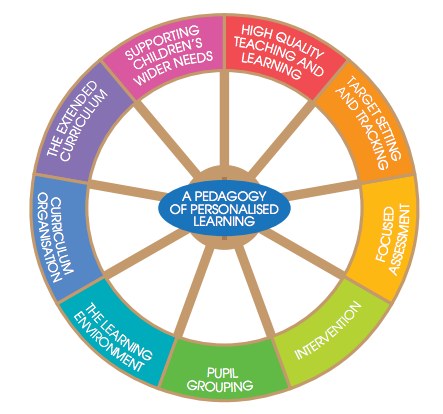Introduction
Personalised learning is an educational approach focused on tailoring the teaching and learning experience to meet the individual needs, interests, and abilities of each student. As educators strive for a more student-centred approach to teaching, the importance of linking pedagogical theory and personalised learning cannot be overstated. In this article, we explore the connection between pedagogical theories and personalised learning, while outlining the benefits of integrating the two in today’s classrooms.
Linking Pedagogical Theories to Personalised Learning
Understanding the key aspects of various pedagogical theories can aid educators in implementing personalised learning strategies in their classrooms. Some of the most well-known theories connected to personalised learning include:
1. Constructivism: Constructivist theory, championed by Jean Piaget and Lev Vygotsky, posits that students construct their own knowledge based on their experiences and interactions with the environment. In a personalised classroom, teachers encourage students to actively participate in constructing their understanding by providing opportunities for individual exploration, inquiry-based projects, and student-led discussions.
2. Cognitive Load Theory: This theory focuses on how learners process information in their working memory. By understanding where cognitive load originates — intrinsic (content complexity), extraneous (teaching methods), or germane (deep processing) — educators can design personalised tasks that optimise students’ cognitive resources.
3. Zone of Proximal Development (ZPD): Vygotsky’s concept of ZPD refers to the difference between what a learner can do independently versus what they can achieve with support from a more knowledgeable person. By identifying each student’s ZPD, educators can provide appropriate guidance and scaffold learning experiences to help learners reach their full potential.
4. Differentiated Instruction: As advocated by Carol Ann Tomlinson, differentiated instruction is a way to address the diverse needs of students through adjustments in content delivery, task complexity, and assessment. By implementing personalised learning, educators can create a differentiated classroom that engages and challenges all students according to their unique abilities.
Benefits of Linking Pedagogical Theory and Personalised Learning
Integrating pedagogical theories with personalised learning offers numerous advantages for both educators and learners:
1. Enhanced Engagement: When educational experiences are tailored to students’ interests, needs, and abilities, engagement increases. This leads to a more enjoyable learning experience and higher motivation to learn.
2. Improved Academic Outcomes: Personalisation enables educators to address gaps in knowledge or skill acquisition, leading to more successful learning outcomes for each student.
3. Versatility in Teaching Methods: Connecting pedagogical theories with personalised learning allows educators to employ a variety of instructional methods that cater to different learning preferences and strengths.
4. Holistic Development: Linking these theoretical frameworks allows teachers to cultivate skills such as critical thinking, problem-solving, creativity, and collaboration in addition to traditional academic knowledge.
Conclusion
The integration of pedagogical theory with personalised learning enriches both teaching practices and educational outcomes for all students. As we continue to acknowledge the diverse needs, interests, and abilities of our learners, incorporating pedagogical theories into personalised teaching models serves as a vital step towards providing a high-quality education that prepares each student for success in the 21st century.





